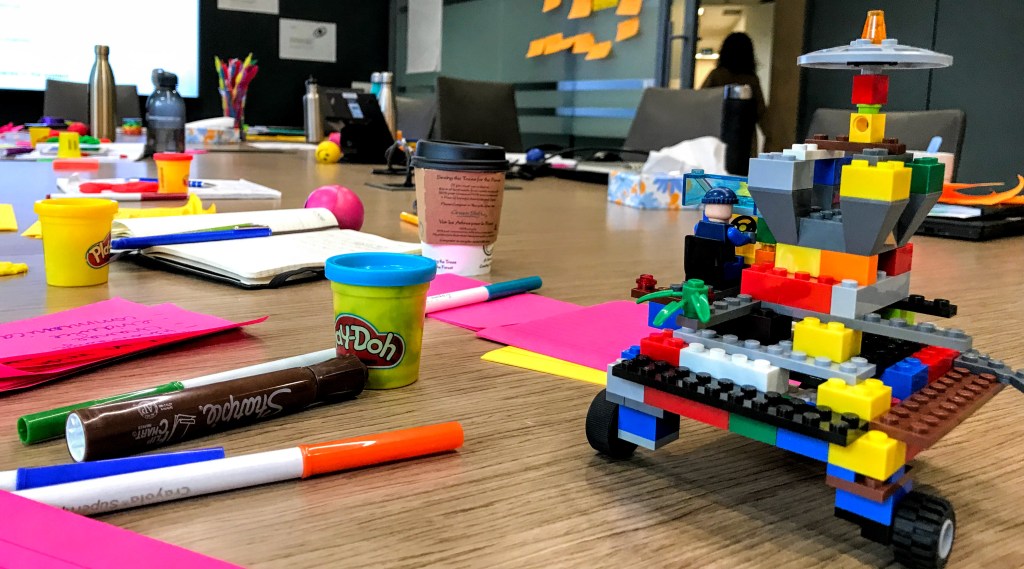This is an Eval Central archive copy, find the original at cense.ca.

Design thinking is much more than sticky notes, whiteboards and creative exploration. It’s impact can be felt in the outputs and outcomes tied to actual product or service and much further if we allow ourselves to focus on that.
Here are 7 questions that we ask of design thinking that focus on the learning outcomes and uncover the true impact of creation, design, and execution, which is a big part of what design thinking is all about.
By asking these we can better tap into the true return on investment of design thinking as a transformative approach to learning, not just product or service design.
- What do people learn in the process of engaging in design thinking?
- What new skills to people acquire, develop, or refine through design thinking?
- How are the lessons from engaging in design thinking applied to other subsequent products?
- What is the effect of design thinking on the mindset of those involved in a design-oriented project?
- How does the co-design process influence team development, cohesion, creativity, and innovation performance?
- What role does design thinking play in shaping the innovation culture (e.g., creation, execution, delivery, and evaluation) with an organization?
- How does design thinking contribute to the implementation of innovations?
Evaluating the impact of your products or services is always important, but if you focus only on that you will miss some of the biggest benefits that design thinking offers your organization when done well.
If you need or want help in learning how your team learns and amplifying the effects of design thinking, contact us and we’ll help you out.
Note: This article was inspired by a recent post on our sister blog, Censemaking, which focuses on ideas, commentary and issues tied to innovation.